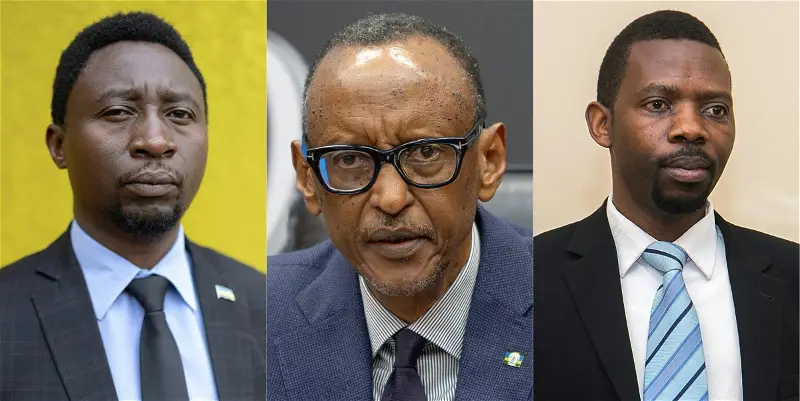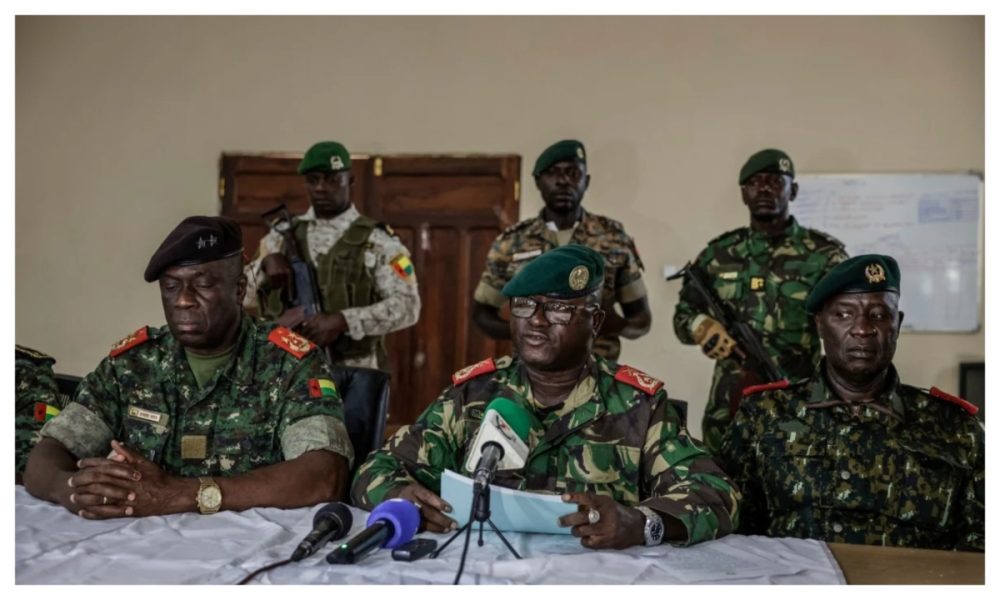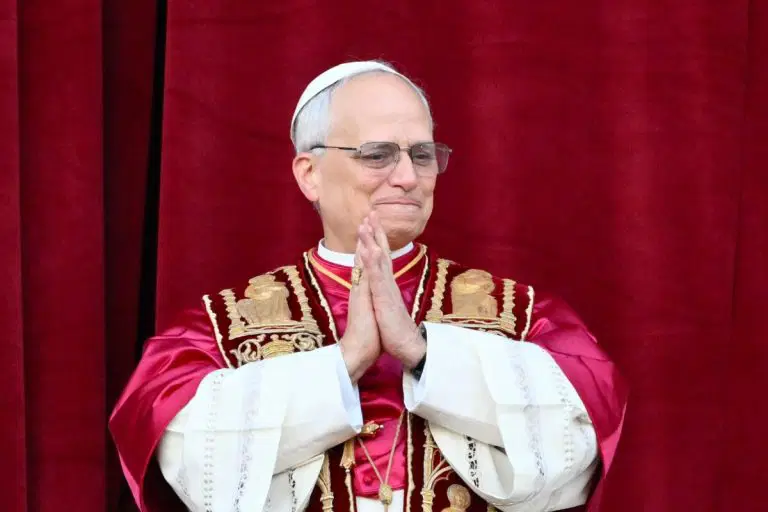Headline
Rwanda Heads To The Polls As Kagame Makes Fourth-term Bid

Rwandans will vote in elections on Monday, with President Paul Kagame widely expected to extend his iron-fisted rule and sweep to victory in a race featuring the same candidates he defeated seven years ago.
Rwanda’s de facto ruler since the end of the 1994 genocide, Kagame faces rival bids by Frank Habineza, leader of the Democratic Green Party — the only authorised opposition — and Philippe Mpayimana, who is running as an independent.
The 66-year-old Kagame is credited with Rwanda’s economic recovery after the genocide, with annual GDP growth averaging 7.2 percent between 2012-2022.
But his regime is widely criticised for stifling political opposition at home, while a UN report has accused Rwandan troops of fighting alongside the M23 rebel militia in the neighbouring Democratic Republic of Congo.
Kagame has won three elections with more than 93 percent of the vote in 2003, 2010 and 2017, taking home nearly 99 percent in the most recent poll.
Habineza secured just 0.48 percent of the vote in 2017, with Mpayimana edging past him with 0.73 percent.
Rwandan courts rejected appeals from prominent opposition figures Bernard Ntaganda and Victoire Ingabire to remove previous convictions that effectively barred them from standing.
The election commission also barred high-profile Kagame critic Diane Rwigara, citing issues with her paperwork — the second time she was excluded from running.
The daughter of industrialist Assinapol Rwigara, a former major donor to Kagame’s Rwandan Patriotic Front (RPF) before he fell out with its leaders, she was accused of forging documents and arrested in 2017 before being acquitted by the courts a year later.
A total of 9.01 million Rwandans are registered to vote, with the presidential poll being held at the same time as legislative elections for the first time.
– ‘President forever’ –
The imbalance between Kagame and his rivals has been evident during the three-week campaigning period, as the well-oiled RPF PR machine swung into high gear.
Pennants on cars, flags, posters and banners displayed along roadsides, the red, white and blue colours of the ruling party and its slogans “Tora Kagame Paul” (“Vote Paul Kagame”) and “PK24” (for “Paul Kagame 2024”) are everywhere.
In contrast to the thousands-strong crowds attending his rallies, his rivals have struggled to make their voices heard, with barely 100 people showing up to some events.
“I came here to listen what he says but I will vote for Kagame… regardless of the others,” Beatrice Mpawenimana, 30, told AFP at a meeting organised by Habineza’s party in the eastern village of Juru.
“He has given us women a voice, he has brought roads, hospitals, so many things… I want him to be president forever, nobody can replace him.”
Like most Rwandans — 65 percent of the country’s population is aged under 30 — she has only ever known Kagame as leader.
The bespectacled politician has been in charge of the landlocked nation since his RPF militia routed Hutu extremists responsible for the genocide which left 800,000 dead, mainly Tutsis but also moderate Hutus.
– ‘No real opponent’ –
Initially serving as vice-president and defence minister, Kagame was elected president by parliament in 2000 after the resignation of Pasteur Bizimungu.
Since then, he has won elections by universal suffrage three times: 95.05 percent in 2003, 93.08 percent in 2010, and 98.79 percent in 2017.
“The RPF ruling party is quite popular across the country, this is undeniable,” Rwandan constitutional lawyer and political analyst Louis Gitinywa told AFP.
“As for the election, it is like an exercise that must be done simply to tick a box. There is no real opponent against Kagame.”
Rights groups accuse the government of abuses including repressing freedom of expression and stamping out dissent.
Amnesty International said this week that Rwanda’s political opposition faces “severe restrictions… as well as threats, arbitrary detention, prosecution, trumped-up charges, killings and enforced disappearances.”
Kagame presided over controversial constitution amendments in 2015 which shortened presidential terms from seven to five years and reset the clock for the Rwandan leader, potentially allowing him to rule until 2034.
Headline
Coup: Guinea-Bissau Junta Releases Six Held Opposition Politicians

Guinea-Bissau’s ruling junta on Tuesday released six members of the political opposition who had been detained since a coup last month.
The six freed opposition members are said to be close associates of Domingos Simoes Pereira, head of the PAIGC party that led the country to independence in 1974.
Pereira has been in custody since the coup.
In a statement by the High Military Command, the junta’s governing body, the releases are described as a sign of good faith and a step towards the return to constitutional normality and respect for international rights.
READ ALSO:Why West African Troops Overturned Benin’s Coup But Watched Others Pass
The army seized power on 26 November after ousting outgoing President Umaro Sissoco Embalo in the wake of a presidential vote.
After taking over, the military suspended the electoral process and announced it would take control of the West African country for a period of one year.
Recall that another opposition candidate, Fernando Dias, took refuge in Nigeria’s embassy, which granted him asylum, while Embalo fled the country after being briefly detained by the military at the time of the coup.
Meanwhile, Senegal’s Foreign Minister, Cheikh Niang, led a delegation to Guinea-Bissau, where he met with detained opponents and requested their release.
Headline
7 Territories Still Under Colonial Rule

Even though most nations became independent in the last century, some territories are still ruled by other nations.
Contents
1. Western Sahara
2. Guam
3. American Samoa
4. United States Virgin Islands
5. Falkland Islands / Malvinas
6. Gibraltar
7. Bermuda
Many of them remain on the United Nations list of non-self-governing territories, meaning they have not completed the process of decolonization. These places usually depend on bigger countries for laws, passports, defence, or political control.
In this article, Nigerian Tribune highlights 7 territories still under colonial rule:
READ ALSO:Nigeria Ranks World’s 102nd Happiest Nation, US, Germany Not Among 20 Top Counties
1. Western Sahara
Western Sahara remains one of the world’s biggest unresolved colonial issues. Morocco controls most of the territory, but the Polisario Front wants independence for the Sahrawi people. The UN is still trying to help both sides agree on a peaceful solution.
2. Guam
Guam is an important US territory in the Pacific, used heavily for American military operations. The US oversees its defence and foreign relations.
People living there are US citizens, but they cannot vote in presidential elections and do not have full representation in Congress.
READ ALSO:FULL LIST: US To Review Green Cards From 19 ‘Countries Of Concern’ After Washington Shooting
3. American Samoa
American Samoa has more local control than Guam, but the United States still decides immigration, defence, and foreign affairs.
Residents are considered US nationals and must apply if they want full citizenship.
4. United States Virgin Islands
The US Virgin Islands have their own legislature, but the United States makes major constitutional and political decisions. The territory depends heavily on US federal support.
5. Falkland Islands / Malvinas
The Falkland Islands remain controlled by the United Kingdom (UK), but Argentina has long disputed this claim, having been in control of the Islands for a few years before 1833.
The people living there voted strongly to stay British, yet the sovereignty dispute continues to appear in the UN.
READ ALSO:Six Countries With Highest Number Of Billionaires In 2025
6. Gibraltar
Gibraltar sits at the Southern tip of Spain. The United Kingdom controls it, but Spain insists the territory belongs to them.
Gibraltarians have repeatedly voted in favour of remaining British, but the dispute is still discussed within the UN Decolonisation Committee.
7. Bermuda
Bermuda is a British Overseas Territory situated in the North Atlantic Ocean. Although it manages most of its own internal affairs and enjoys a strong economy with modern facilities, the United Kingdom still handles its defence and represents it in global matters.
Headline
Russia-Ukraine War: Pope Leo Calls For Global Christmas Truce

Pope Leo XIV on Tuesday renewed his call for a global truce on Christmas Day, saying he felt “great sadness” after Russia “apparently rejected a request” for a pause in fighting.
Speaking to reporters at his residence in Castel Gandolfo near Rome, the Pope urged all sides involved in conflict to observe at least one day of peace.
“I am renewing my request to all people of goodwill to respect a day of peace — at least on the feast of the birth of our Saviour,” Leo said.
Recall that Russia invaded Ukraine in February 2022 and has repeatedly turned down calls for a ceasefire, arguing that any pause would give Ukraine a military advantage.
READ ALSO:Russian Strikes Kill Five In Ukraine, Cause Power Outages
“Among the things that cause me great sadness is the fact that Russia has apparently rejected a request for a truce,” the pope said.
Referring to conflicts worldwide, Leo added, “I hope they will listen and there will be 24 hours of peace in the whole world.”
The appeal came as fighting continued in eastern Ukraine. On Tuesday, Ukrainian forces withdrew from a town after heavy battles with Russian troops. Russian strikes killed three civilians and left thousands without power during winter temperatures.
READ ALSO:Trump Blasts Ukraine For ‘Zero Gratitude’ Amid Talks To Halt War
There was no indication of progress toward ending the war after separate meetings last weekend in Miami between the United States officials and negotiators from Russia and Ukraine. The conflict is nearing four years with no settlement in sight.
Earlier this month, Pope Leo met Ukrainian President Volodymyr Zelensky. When asked whether he would accept Zelensky’s invitation to visit Ukraine, the pope said, “I hope so,” while noting that it was not possible to say when such a visit could happen.
Leo also warned that efforts to secure peace without European diplomatic involvement were “unrealistic”, expressing optimism that President Donald Trump’s proposed peace plan could bring a “huge change” to the transatlantic alliance.

 News3 days ago
News3 days agoPHOTOS: New Era In Furupagha-Ebijaw As Okpururu 1 Receives Staff Of Office

 News2 days ago
News2 days agoUBTH CMD Marks 120 Days In Office, Expresses Commitment To Providing Conducive Working Environment

 News3 days ago
News3 days agoFG Declares Public Holidays For Christmas, New Year Celebrations

 News3 days ago
News3 days agoOPINION: Gumi And His Terrorists

 Metro5 days ago
Metro5 days agoShe Grabs, Pulls My Manhood Anytime We Fight — Husband

 News2 days ago
News2 days agoFIRS Confirms NIN As Tax ID

 News3 days ago
News3 days agoOPINION: Christmas And A Motherless Child

 News2 days ago
News2 days agoOPINION: My Man Of The Season

 Metro5 days ago
Metro5 days agoWhy I Charged My Husband Money For Sex —Woman

 Metro2 days ago
Metro2 days agoFintiri Pardons Man Sentenced To Death For ‘Killing Herdsman In Self-defence’, Others


























